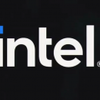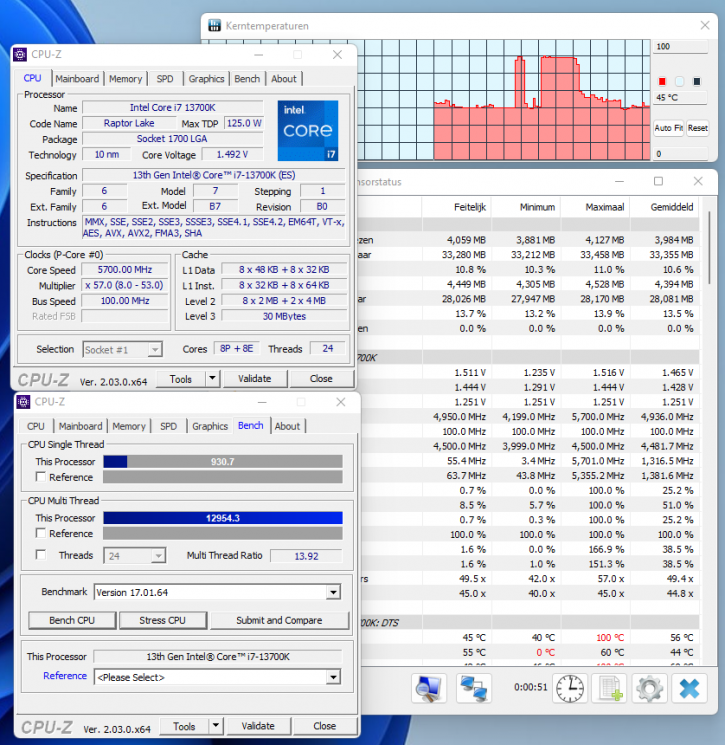Conclusion
Final Words
Taking a look at the results achieved with this processor, we can say that 13700K is smack down in the middle of the 13600K and 13900K in terms of raw performance, yet in games, it is as good as the top-of-the-line model in all resolutions, but also that 13600K. The 24 threads allow it to surpass the Ryzen 9 7900X in almost every test, being slightly faster in pure performance, attaining better results with DDR5 RAM, and achieving more significant FPS in games. The Intel Core i7-13700K will cost €549 on Amazon but can be spotted at 510 EUR at some shops, and this is excellent news because it is cheaper than its rival 7900X Zen 4. As a result, it becomes Raptor Lake's a very balanced CPU in terms of performance/price, with more than enough power in all job scenarios. We tested on a Z790 motherboard that allows the multi-core configuration to be set at reference specification, and we did that. So you're seeing as close to reference performance as possible. That means on a lot of platforms, this CPU will perform When we load up motherboard optimized defaults, we noticed that that would also increase the CPU's heat levels, hitting 90 Degrees C in short bursts. The processor can take that; however, it requires satisfactory cooling. It's a somewhat similar story to the top-end Ryzen 7000 SKUs. If you're a gamer, then the new L2 caches do make up for a lot of extra performance, and this is probably also why the 13600K is probably the more compelling processor, be sure to check out that review. Realistically we feel we should call the 13700K with a Z790 motherboard Intel's new HEDT platform for the consumer market. The cost of running that performance will be tailed by heat levels and significant values in energy consumption. Next, the ownership cost is steep if you convert to a new Z790 platform with DDR5 memory. If you can cool it well enough (Tjmax is 100°C), then the 13700K is listed by Intel at a boost of (up to) 5.4GHz, which we can confirm. So much of determining how good this processor is is your use case, but it is pretty clear that it is decisive for creating workloads, rendering, calculating, and web browsing. It can hold its own and offers proper performance levels for enthusiast class gaming.
Price and value
| Cores | Clock Frequency | Cache | Power usage | Price | |||||||
| Intel | P | E | Base P | Turbo P | Base E | Turbo E | L2 | L3 | Base | Turbo | USD |
| Core i9-13900K | 8 | 16 | 3.0GHz | 5.8GHz | 2.2GHz | 4.3GHz | 32MB | 36MB | 125W | 253W | 589 |
| Core i9-13900KF | 8 | 16 | 3.0GHz | 5.8GHz | 2.2GHz | 4.3GHz | 32MB | 36MB | 125W | 253W | 564 |
| Core i7-13700K | 8 | 8 | 3.4GHz | 5.4GHz | 2.5GHz | 4.2GHz | 24MB | 30MB | 125W | 253W | 406 |
| Core i7-13700KF | 8 | 8 | 3.4GHz | 5.4GHz | 2.5GHz | 4.2GHz | 24MB | 30MB | 125W | 253W | 384 |
| Core i5-13600K | 6 | 8 | 3.5GHz | 5.1GHz | 2.6GHz | 3.9GHz | 20MB | 24MB | 125W | 181W | 319 |
| Core i5-13600KF | 6 | 8 | 3.5GHz | 5.1GHz | 2.6GHz | 3.9GHz | 20MB | 24MB | 125W | 181W | 294 |
Gaming performance
The 13th Core series processors get Intel thoroughly back in the gaming saddle. If we look at CPU-bottlenecked resolutions, then Intel is the fastest everywhere. It trades performance with the 5800X3D here and there, but it's a victory for Intel. We can't blow this out of proportion either, as these are performance differentials that remain trivial; not everybody (heck, almost nobody) has a premium 1000 USD+ graphics card. Contrary, most of you will have an GeForce RTX 3060 or Radeon RX 6600 XT, here the CPU performance is not a problem as the GPU is the more significant bottleneck. But apples for apples, the gaming procs to get will be either AMD's 5800X3D or the 13600K, yeah you read that right; go check out that review. In short, the win goes to Intel this round, but that also means that with a mighty graphics card, this processor, on average, can feed frames slightly faster than AMD's equivalent. Realistically though, at six or eight cores, your gaming experience will already be great; we feel that eight cores are the norm these days for a properly nice gaming PC and overall PC desktop. The turn now goes to AMD with a potential Series 7000 X3D processor.
DDR5 Memory
If you decide to go for a completely new platform, the elephant in the room is the cost of ownership. While DDR5 memory will get cheaper next year, you'll likely pay a price premium right now. For Intel, we recommend at least 5200 MHz, however much like AMD, 6000 MHz might be a nice sweet spot. Stability-wise, we had no issues.
Energy efficiency
The 125W TDP-rated Core i9-13700K is a processor that is allowed a staggering max 253 Watts (PL2) state. However, we're seeing the PC moving towards 375 Watts under all-core load, deduct the motherboard and GPU from there, and you'll end up at 275~325 Watts. That does not mean the processor runs that wattage all the time, however for short bursts of time when needed, it can pull that wattage. Overall the temperatures peak high, but only for a short time. We see better overall values than what AMD is offering with the 7950X, but this processor, when max boosting, shows remarkably high energy consumption. You could cool this processor with a premium heatpipe-based cooler however, we'd advise a nice LCS kit. Our processor reached 90, even 95C for a short burst of time and settles in the 80'ies C under a fully threaded workload.
Tweaking
Overclocking has revealed nice headroom, with all core frequencies pegged at 5.7 GHz on P-cores we were good to go. However, not everything is that promising because its energy consumption is significantly higher than that of Ryzen CPUs, and temperatures are exceedingly high if the PL2 is not controlled via BIOS or Intel XTU. This will result in thermal throttling on applications when the CPU is pushed to 100% with all core workloads, such as rendering.
Conclusion
When you compare apples with apples, the Intel Core i7 13700K is a faster/higher clocked i9 12900K, but for less money with increased caches. It uses a lot of energy and also runs hot fast, but so do its direct Ryzen 7000 competitors. An advantage is that it can be seated in a cheaper motherboard, and if you already have a nice DDR4 kit, you can reuse it. I'll quickly reiterate this, though, the win will go to the 13600K processor; read here as to why that is. With a 1% differential, our IPC test proves that the basis of the architecture is still Alder lake, but with bigger caches and higher clock frequencies. That means much like AMD, Intel pulled open all available registers, the trade-off being thermal- and energy efficiency. Combined with the new Z790 platforms, you'll now also get access to PCIe Gen 5. Very lovely, however at the time of writing, it remains a bit worthless, as no graphics card is even compatible, let alone needs 16x PCIe gen 5 lanes. For future SSDs, it can make a difference, but I am not overly confident that PCIe Gen 5 SSD will make a real-world difference; yes, sustained speeds will pass 10GB/s however you'll presumably get the very same 4K read/write performance as really the biggest thing going is bandwidth. Mind you that there only will be 16 lanes available for PCIe gen 5.0, so if you ever get a compatible graphics card, the NVMe SSDs would drop down to gen 4.0 or the PCIe lanes split up, and your GPU gets an x8 link. Intel's Core i9 13700K offers proper threaded performance and very fast single-threaded performance. I'll be the devil's advocate here; gaming-wise, looking at energy efficiency and cool temps, the value proc to get is the Ryzen 7 5800X3D. It'll save you the cost of ownership for the total platform and the heat issues you'll need to fight. The 5800X3D does forfeit big time overall on massively threaded applications. The motherboards are loaded with their latest features running from USB 3.2 2x2, 2.5 G LAN, and WIFI6E. Now I just mentioned the 5800X3D. However, another alternative of course is the Core i5 13600K, in our honest opinion, perhaps the product to get if it's all about gaming for you. You'll gain heaps of multi-threaded and single-threaded performance at 294 USD (KF) or 319 USD for the K model. Check that review, my fellow guru. That processor combined with PCIe Gen 5.0 might make all the difference. The 13th Generation series is impressive, often outperforming.
The Intel Core i7-13700K consumes more power than the AMD Ryzen 7 7700X, but it also provides a significant performance improvement. The Core i7-13700K price-to-performance advantage becomes even more articulated when we include the price of motherboards and memory. Intel maintained compatibility for DDR4 memory, paving the way for substantially less expensive memory and motherboards compared to AMD's AM5 ecosystem, which requires DDR5 memory. Intel proclaims that you will not experience any big performance loss if you use a 600-series motherboard from an earlier generation providing it has enough power delivery, opening up another route for value seekers. The 13700K's cooling requirements are not quite as demanding as those of the 13900K, but its increased power budget necessitates more capable coolers than we are used to utilising Core i7. AMD's chips consume less power and are more efficient, but they operate at elevated temperatures (95C may be expected) and now require up to 230W of power to match the 13700K's threaded performance. Hence, the differences are not as apparent as they once were. Suppose you are searching for more value in a high-performance processor for gaming and complex workloads. In that case, the Core i7-13700K has enough power to compete with AMD's Ryzen 9 in productivity applications while also being an agile gaming chip that matches Core i9 gaming performance at Core i7 pricing a product to recommend and consider.
- Sign up to receive a notification when we publish a new article
- Or go back to Guru3D's front page.



